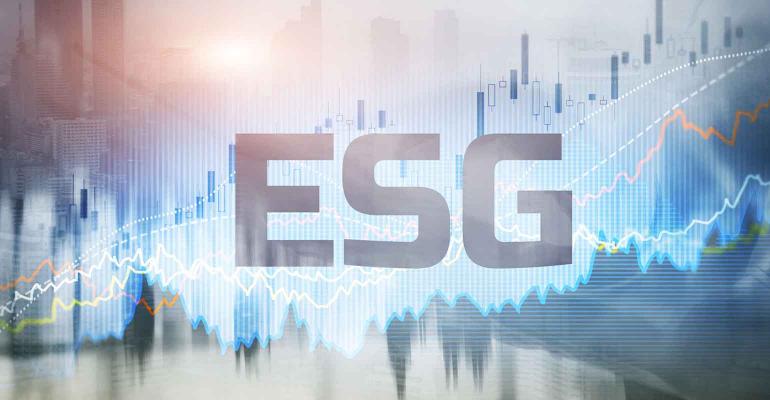September was an exciting month for ESG news in the wealth management industry. The SEC announced it's moving toward mandatory ESG disclosures, Vanguard faced activist pressure around climate change, Engine No. 1 developed a framework for tying ESG to company valuation, the New York Stock Exchange developed a new nature-based asset class and climate-related proxy voting reached 50% support. Let’s break it down:
At the beginning of September, SEC Chairman Gary Gensler took bold action to examine the credibility of ESG claims by ordering a review of all funds’ ESG disclosures. Specifically, the SEC will decide whether funds should disclose the underlying data they use to justify their “green” or “sustainable” branding. This development follows a lawsuit in February accusing Deka of misleading investors on the impact of its impact equity fund, the confirmation of the European Union SFDR mandatory ESG disclosures in March, the SEC risk alert on ESG disclosures in April and the SEC probe over DWS’s sustainability practices in August.
What does this mean for advisors?
“Greenwashing” is the word of the year in the ESG space, and accusations of greenwashing might be the deepest fear of many ESG advisors. Greenwashing is when a company or a fund’s sustainability claims and marketing outpace its actual sustainability practices. Advisors need to be prepared for questions about greenwashing from regulators and clients alike (in fact, greenwashing tops investors’ concerns). Specifically, advisors should make sure they understand the ESG strategies of the funds they pick, and ensure their issue focus (climate, gender, faith-based, etc.) and commitment to shareholder engagement/proxy voting matches client expectations.
The think tank Universal Owner claims that Vanguard could lose $3 trillion from a 2-degree Celsius temperature rise by 2050 due to the detrimental impact of climate change on the economy. But according to Universal Owner, Vanguard is falling short in aligning its portfolios with the Paris Agreement. Additionally, Vanguard’s climate-related proxy voting record lags behind peers, and its stewardship team is found to be underresourced.
What does this mean for advisors?
Vanguard’s ESG funds are attractive to advisors looking to provide their clients with low-cost ESG solutions. However, Vanguard faces increased public pressure from activists around its firmwide ESG and climate strategy. Until it can make substantial changes, any perceived hypocrisy from Vanguard could rub off on the reputation of advisors that recommend its ESG funds to clients.
Engine No. 1, which made headlines for winning three Exxon board seats this spring, continues to make waves with the release of its Total Value Framework. The new framework would quantify, with a dollar value, the uncompensated consequences of a company’s operations, such as pollution, poor worker treatment and human rights abuses. Engine No. 1 believes that, over time, government and consumer pressure will cause these environmental and social issues to have a major impact on the company’s financial performance.
What does this mean for advisors?
We’re in the midst of a battle over the definition of ESG. Groups like Engine No. 1 or SASB represent one view that ESG should be strictly tied to financial value. The alternative is linking ESG to personalized values. For example, some people want to invest in gun manufacturers, and others want to avoid them, regardless of whether there is impending legislation (with clear financial implications) to ban or expand production of firearms. Advisors must assess what each of their clients are looking for when it comes to ESG. Are they looking for companies that align with their values or companies that will outperform financially due to ESG outperformance, or both.
The NYSE announced it will begin listing a new asset class aimed at unlocking the value of nature. NYSE has partnered with Intrinsic Exchange Group to create natural asset companies (NACs), a tangible asset class tied to “ecosystem services,” such as clean water or carbon sequestration. The value of the NAC is based on the intrinsic value of the natural asset, as well as revenue streams for the ecosystem services it provides. Investors will be able to buy shares and, in turn, provide capital for companies to continue these environmental efforts.
What does this mean for advisors?
While there is still much to be learned about how natural asset companies might fit into client portfolios, this news provides yet another example of how institutions are finding new ways to keep up with the growing demand for ESG. Advisors should keep their eyes peeled for more updates about NACs as this story develops and as clients look for more direct ways to invest their money in support of environmental causes.
Analysis by Institutional Shareholder Services found that median shareholder support for climate-related shareholder proposals reached 48.9%. To put that number in context, support for ESG shareholder proposals hovered around 10% for decades before steadily increasing since the early 2010s. Even with minimal support, shareholder proposals demonstrated a strong track record of driving corporate ESG improvement on everything from pollution reduction to board diversity to lobbying transparency. We are entering a new era where ESG investors can influence significant assets to drive consistent change through the proxy voting process.
What does this mean for advisors?
Most people think of proxy voting as mail they throw in the trash once per year. It is now table stakes for institutional asset managers, as they embrace voting as an important component of ESG stewardship. It’s only a matter of time before more clients ask about the proxy voting policies and records of your practice and the fund managers in their portfolios.
Gabe Rissman is the president and co-founder of YourStake, a platform to help wealth and asset managers to build custom ESG portfolios and provide personalized ESG reporting.





